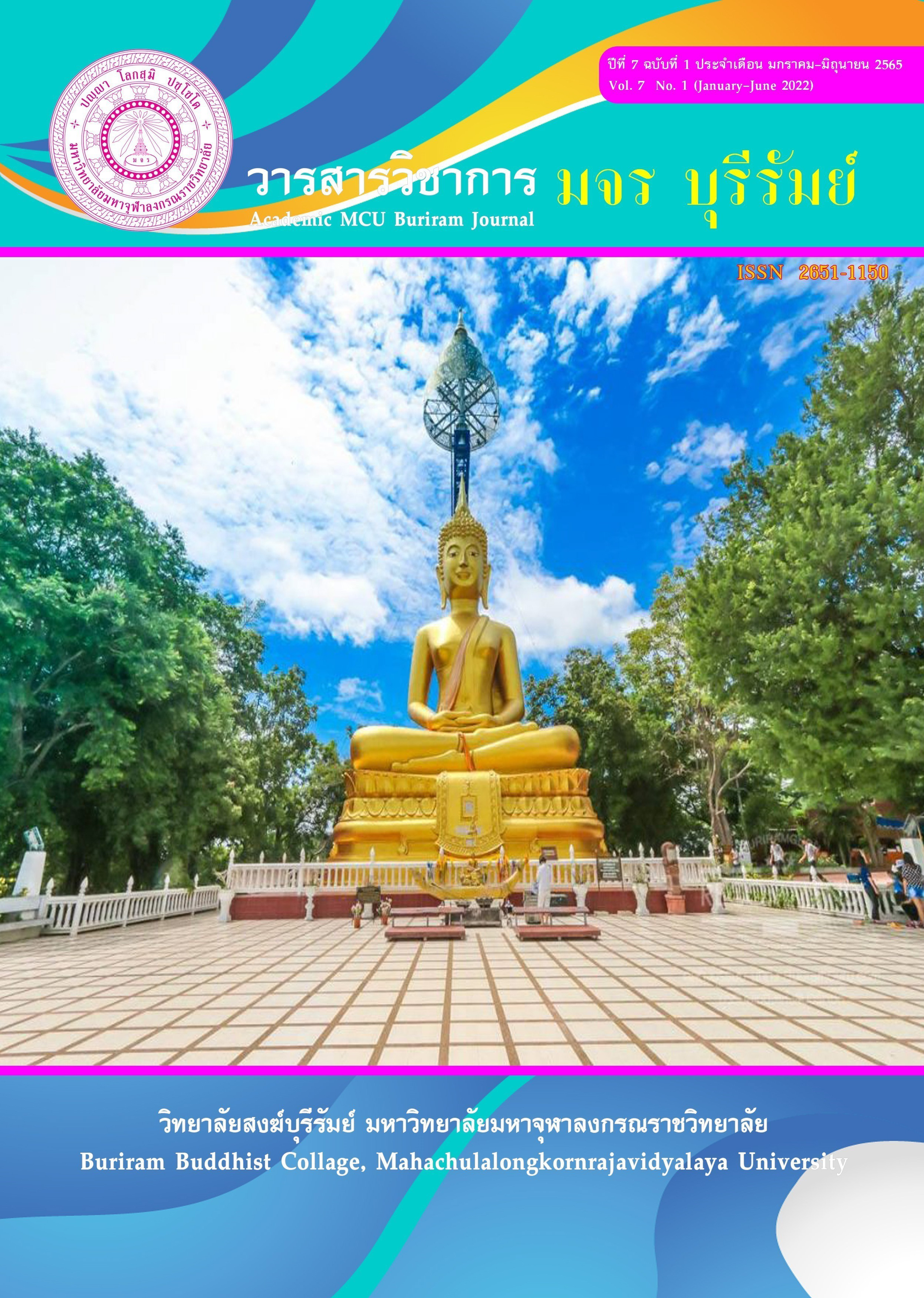Self-Development according to Yonisomanasikarn Principles
Keywords:
การพัฒนา, พัฒนาตนเอง, โยนิโสมนสิการAbstract
This research article, the objectives of the researcher were to study self-development according to the Yonisomanasikan principle. The principles of self-development that focus on education consist of self-development meaning, self-development importance, self-improvement aim, self-improvement component, self-development process and how to develop yourself. With the principle of Yonisomanasikan That consists of the principle of doing in the mind with discretion and thinking in the right way, so to think in an orderly way or to think according to the way of wisdom, know how to look, know how to consider things according to the conditions. For example, think according to what by causal method, search to the source, traced along the line, differentiate things according to the situation and according to the inheritance relationship of causes and factors. Without taking the feelings with their own preconceived passions to capture or cover them up to create goodness and solve problems. The method of wisdom Yonisomanasikara is therefore the core or indispensable part of education. Education is real success, discovery, initiative, significant intellectual advancement, the heart of self-improvement. Yonisomanasikarma is the principle of thinking, analyzing and synthesizing. for the benefit of leading a happy and sustainable life.
References
ประเวศ วะสี. (2545). การดำเนินการปฏิรูปการเรียนรู้ (จบ). สานปฏิรูป, 5(54).
ปราณี รามสูตร และ จำรัส ด้วงสุวรรณ. (2545). พฤติกรรมมนุษย์กับการพัฒนาตน. พิมพ์ครั้งที่ 3. กรุงเทพมหานคร: ธนะการพิมพ์.
พระธรรมปิฎก (ป.อ. ปยุตฺโต). (2546). รุ่งอรุณของการศึกษา เบิกฟ้าแห่งการพัฒนาที่ยั่งยืน. พิมพ์ครั้งที่ 2. กรุงเทพมหานคร: พิมพ์สวย.
พระพรหมคุณาภรณ์ (ป.อ. ปยุตโต). (2559). การศึกษา: มองเมื่อ 30 ปีก่อน. กรุงเทพมหานคร: ธรรมทานบุญกิริยา.
เมธาวี อุดมธรรมานุภาพ และคณะ. (2550). พฤติกรรมมนุษย์กับการพัฒนาตนเอง. พิมพครั้งที่ 5. กรุงเทพมหานคร: สํานักพิมพ์สถาบันราชภัฏสวนดุสิต.
ราตรี พัฒนรังสรรค์. (2544). พฤติกรรมมนุษย์กับการพัฒนาตน. กรุงเทพมหานคร: สถาบันราชภัฏจันทรเกษม.
สุภัททา ปณิฑะแพทย์. (2542). พฤติกรรมมนุษย์และการพัฒนาตน. กรุงเทพมหานคร: ภาควิชาจิตวิทยาและการแนะแนว สถาบันราชภัฏสวนสุนนัทา.
พิสิทธิ์ สารวิจิตร. (2529). ยุทธศาสตร์การพัฒนาตนเองและบุคลิกภาพจากระดับอนุบาลถึงปริญญาเอก. กรุงเทพมหานคร: พงษ์เจริญการพิมพ์.
สุชาติ เด่นประเสริฐ. (2546). การพัฒนาตนเองของผู้บริหารโรงเรียนประถมศึกษา สังกัดสำนักงานการประถมศึกษาจังหวัดกระบี่. วิทยานิพนธ์ปริญญาศึกษาศาสตรมหาบัณฑิต สาขาวิชาการบริหารการศึกษา. บัณฑิตวิทยาลัย: มหาวิทยาลัยเกษตรศาสตร์.
ไพศาล ไกรสิทธิ์. (2541). เอกสารคำสอนรายวิชา การพัฒนาตน. ราชบุรี: สถาบันราชภัฏหมู่บ้านจอมบึง.
Downloads
Published
How to Cite
Issue
Section
License
Copyright (c) 2022 Academic MCU Buriram Journal

This work is licensed under a Creative Commons Attribution-NonCommercial-NoDerivatives 4.0 International License.
ทัศนะและความคิดเห็นที่ปรากฏในบทความวารสารฉบับนี้ถือเป็นความรับผิดชอบของผู้เขียนบทความนั้น ไม่ถือเป็นทัศนะและความรับผิดชอบของบรรณาธิการ





